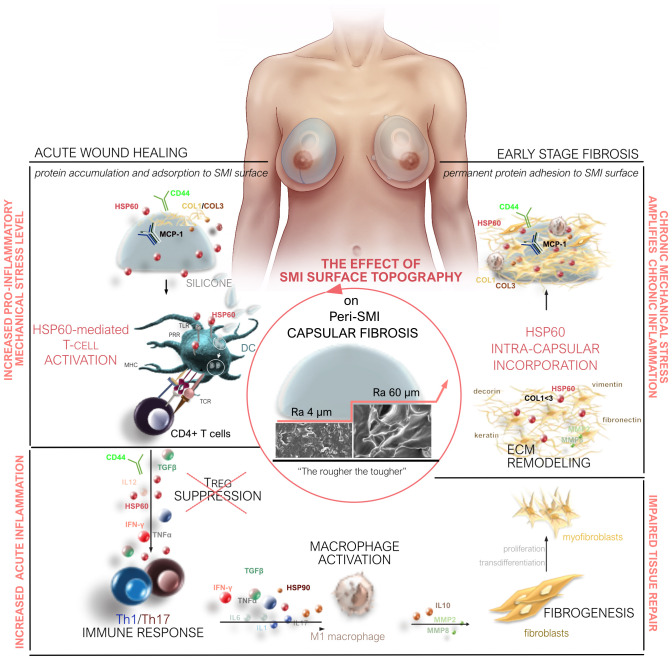Figure 8.
Microtopography Effects on Capsular Fibrosis. Microtopography significantly impacts capsular fibrosis through heightened pro-inflammatory mechanical stress on rougher SMI surfaces (Ra 60 µm). This stress enhances cell adhesion-mediated inflammatory signaling, intensifying the inflammatory response. Rougher surfaces promote a proinflammatory immune cell phenotype, with HSP-60-mediated T-cell activation contributing to increased inflammation during implantation. The elevated cell adhesion on rougher surfaces, compared to smoother ones, potentially heightens the activation of immune cells, particularly macrophages. Proteomic analysis of rougher implant surfaces reveals a distinctive biomolecular interaction pattern, altering protein adsorption and potentially amplifying downstream signaling, prolonging inflammation. The varied inflammatory milieu around implants with different surface roughness levels suggests an impact on cytokine and chemokine expression, potentially leading to an imbalanced cytokine profile. Long-term chronic inflammation impairs tissue repair by promoting excessive fibrogenesis.

